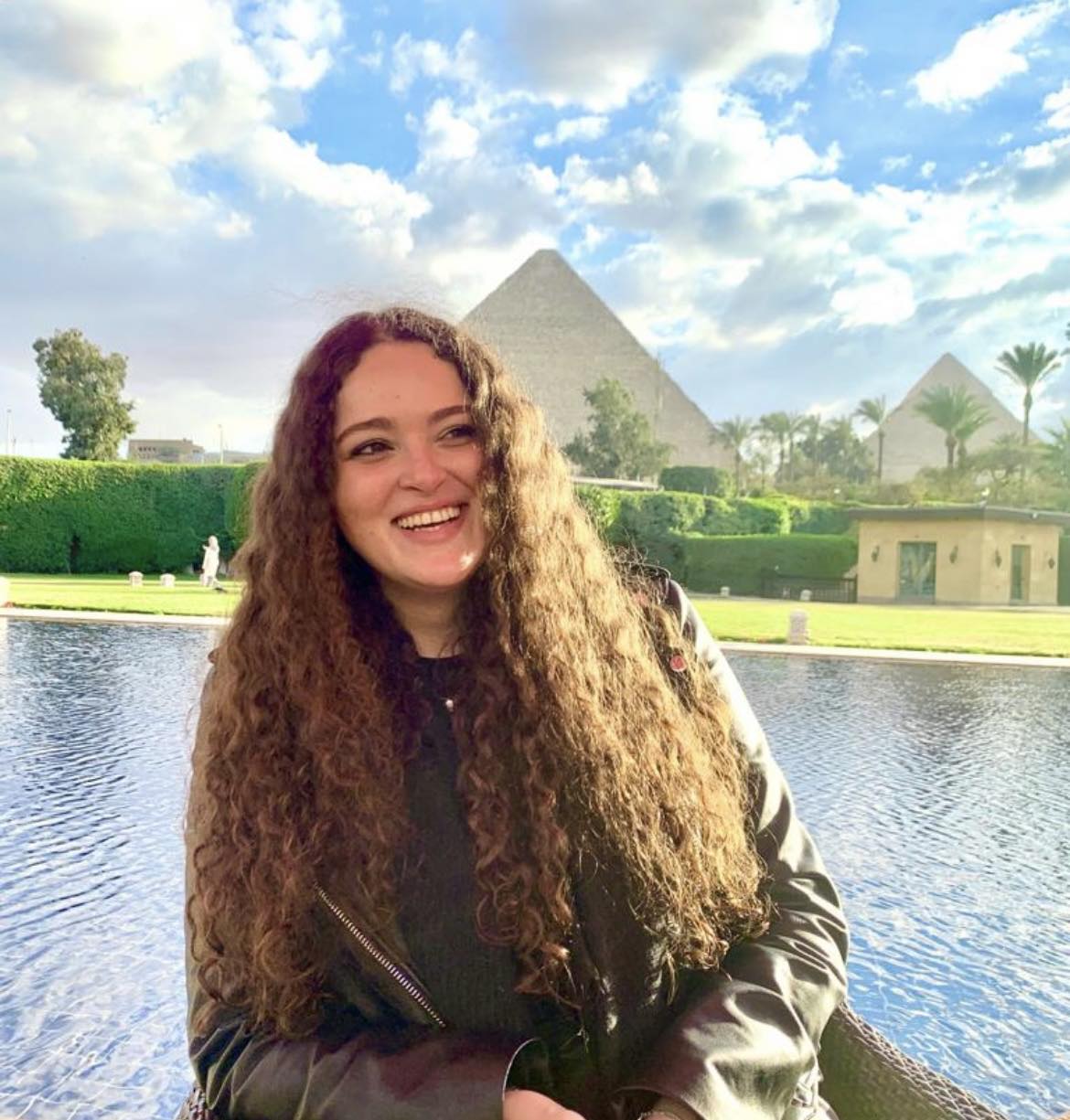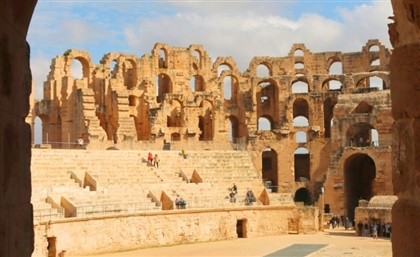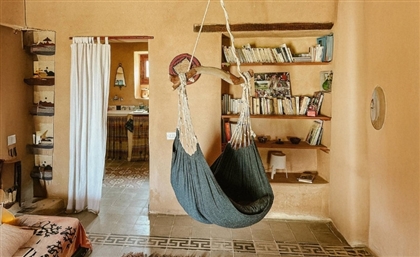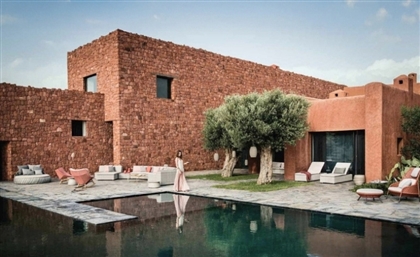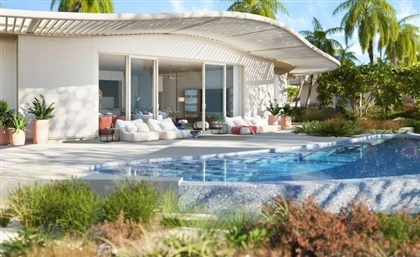This Airbnb in Egypt’s Fayoum is Where Troubled Souls Find Solace
Domed ceilings, stained glass windows, and views of Lake Qarun – Blue Tunis Villa is about simplicity, serenity and the soul.
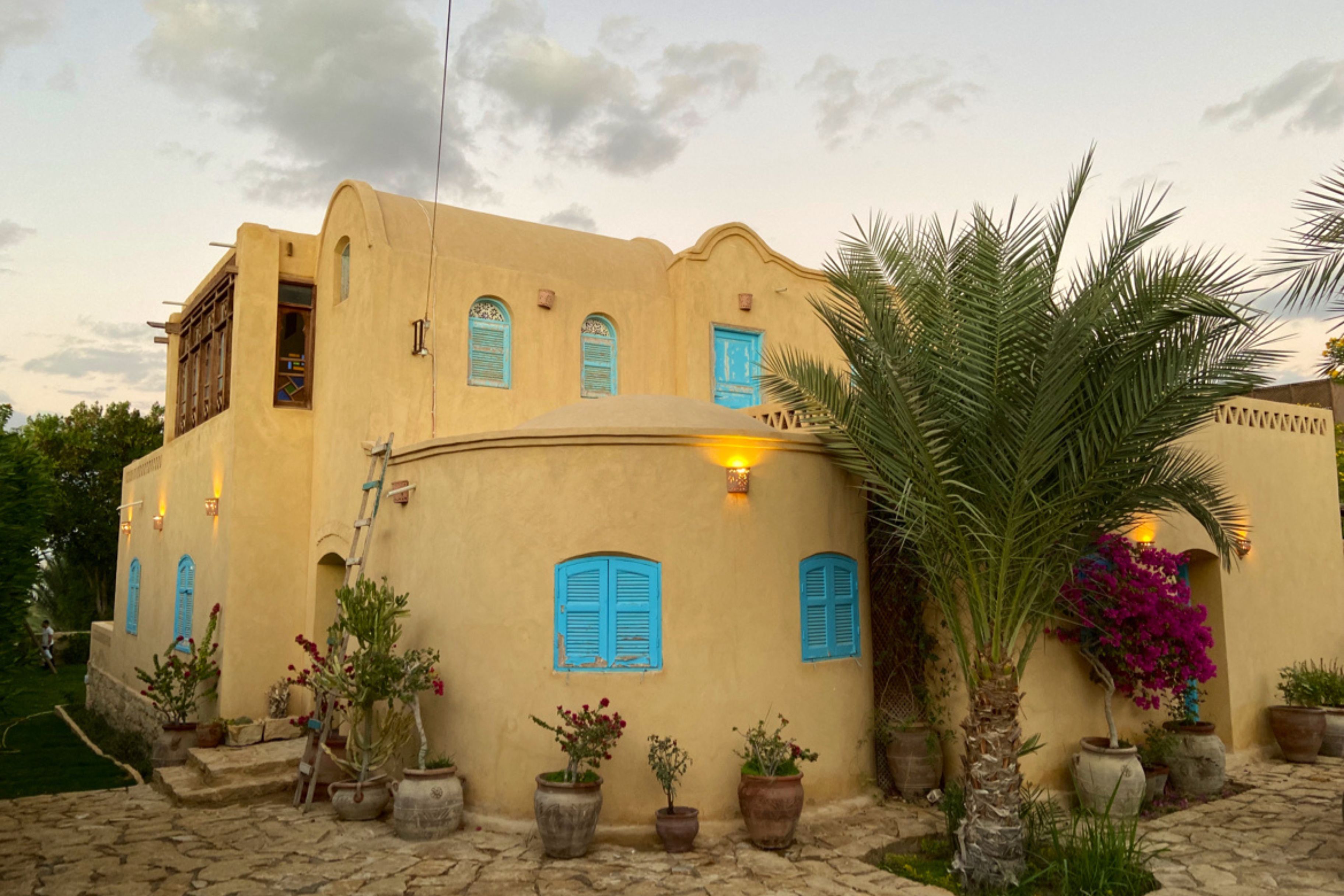
We were two women in the making, thrown into the same Nubian-style four-bedroom lodgings, breathtaking scenery and freshly-plucked flowers included, to mostly unintentionally – yet, quite urgently – begin to sow up the gashes that had long-marred our most prized organ.
Both of us were rather hurriedly (we literally had a blink of an eye to pack) thrust into the Egyptian countryside, each of us holding on – tooth and nail – to a pain so deep and so unhealed, it had taken up its own space in the sardine-can car we had hopped into to reach our desert destination.
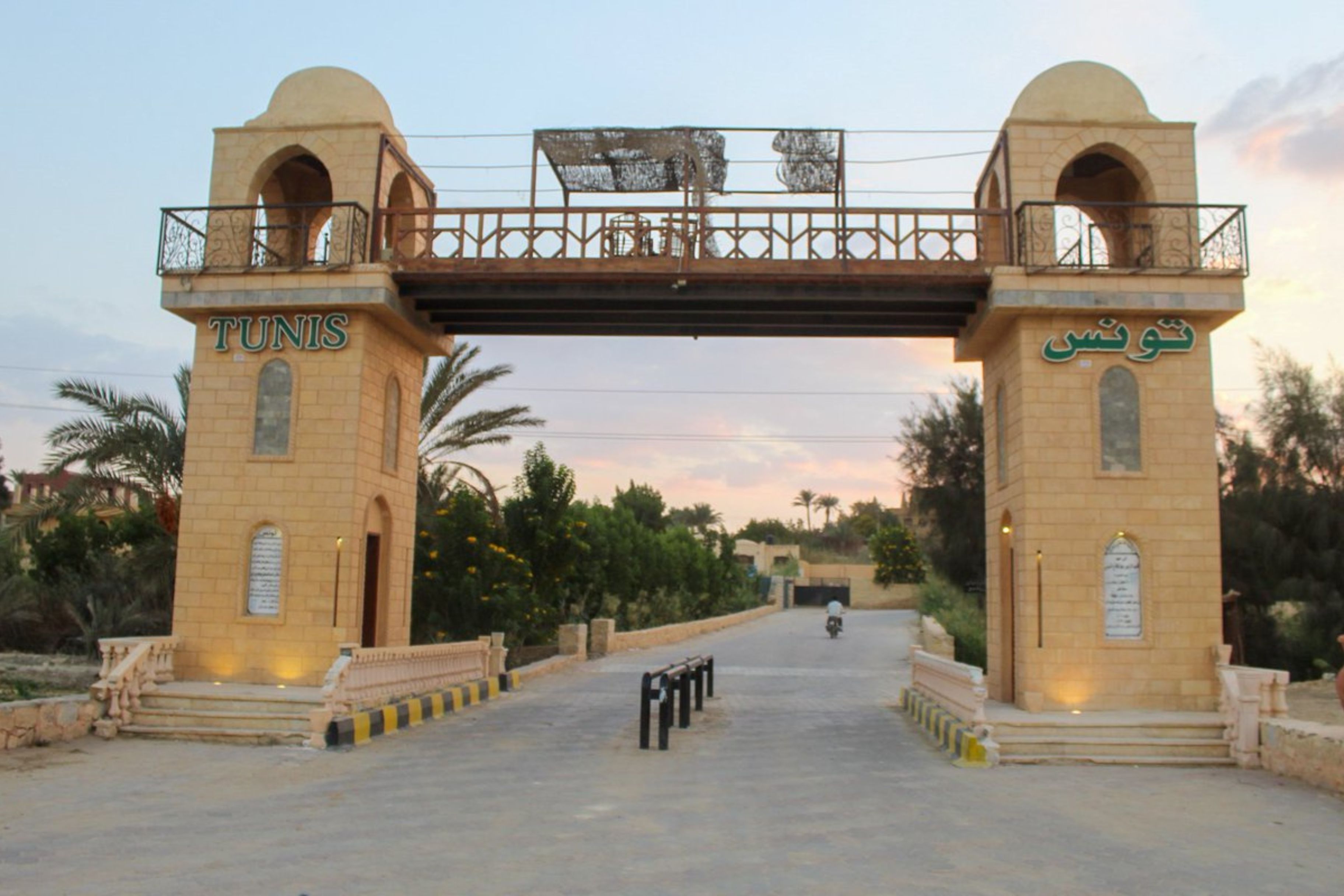
My own grievances, those of the heartstrings, already seemed to grow more and more insignificant, as they collectively morphed into a single unidentifiable dot in the rearview mirror. Noher’s brand of pain was, on the other hand, far deeper-residing than mine and so, demanded far more attention. Grief does, after all, take the pain cake.
What united us both in our quest across one of the most mesmerising UNESCO World Heritage Sites Egypt has to offer – the Oasis of Fayoum – was the simple (and, if we’re being honest, desperate) goal of unearthing some semblance of serenity, silence and solitude in one of the verdant fields, delicate pottery shops, or colourful tuktuks of Fayoum’s Tunis Village, both its own destination and a stop on the way to the breathtaking valleys and lakes of Wadi Rayan.
And, although we had meticulously planned the trip down to the half hour (alas, it is the only way I know how to “have fun”), what we could not have anticipated was that the allure of the village would be rivalled by the magic found within the dried-mud-brick walls of Blue Tunis Villa, our airbnb for the weekend.
-05d4a58b-54b3-41e0-af8a-0f3cdcfa19de.jpg)
As our driver slowly pulled the car to a stop outside the villa’s wrought-iron gates, proceeded to unload our uber-voluptuous bags then went on his merry way back to Cairo, where he would remain until the end of the weekend, Noher and I took a second to study our quiet, empty, and pitch-black surroundings. Just as the dreaded thought of ‘What have we done?’ swirled around in our already-jumbled minds, the villa’s ever-cheerful doorman, Mohamed, stepped out of the house.
“Welcome, Miss Layan!” his tone was admirably energetic for 11PM. “Please. Come inside and grab an apple, while I get your bags.”
We walked into the spacious villa and immediately looked up at the domed ceiling, adorned with stained glass windows of kaleidoscopic colours that would most certainly look even more entrancing with daylight streaming through them. On the right was the half-circle kitchen, where the fridge was stocked with water, the counter had an assortment of coffees and teas, and there was a big bowl of apples and bananas that would be entirely consumed before the break of dawn.
-c1e32b9b-94a4-407f-bc3d-061bd0aae150.jpg)
On the left was a larger than life living room (with a fireplace!), and glass-panelled doors leading out to a swing-inclusive garden that seemed to stretch on as far as the nearby Lake Qarun. The villa’s four bedrooms (which we only began exploring once Mohamed had graciously excused himself) were an ode to the traditions of the land on which they were built – domed or wooden-beam ceilings, adorned with an assortment of trinkets from local artisans, and, of course, stained glass windows.
Considering that the lower- and upper-floors were separated by a lockable door for a dash of added privacy (say, for two families staying together), it took us a minute to find the piece de resistance of the entire villa – the upstairs living room.
-58056a1f-1e19-4af7-b9d0-9463a8ba9768.jpg)
Traditional Bedouin-style floor cushions in the deepest shade of red, patterned handwoven rugs, a small window to the adjacent kitchenette, two whole walls of windows with Arabesque motifs, and a spacious terrace overlooking the garden below and the village beyond. By the time we had ended our curiosity-fueled exploration, the bubbling excitement had begun nudging our sorrows to the far corners of our minds. We flitted about the elongated hallways, took out our phones and reignited our passions for filmmaking and photography, embarked on a treasure hunt through dozens of drawers and cabinets, and, perhaps most importantly, curled up until the covers of the very same bed and unparsed the burdens taking up residence within our souls.
In short – we began to heal. The house was that breathtaking. Every detail, from the bright blue wooden windows to the pottery ornaments and countless kilim rugs, seemed to have been handpicked by a fellow wandering soul looking to lay down some lifelong roots within the halls of this very villa.
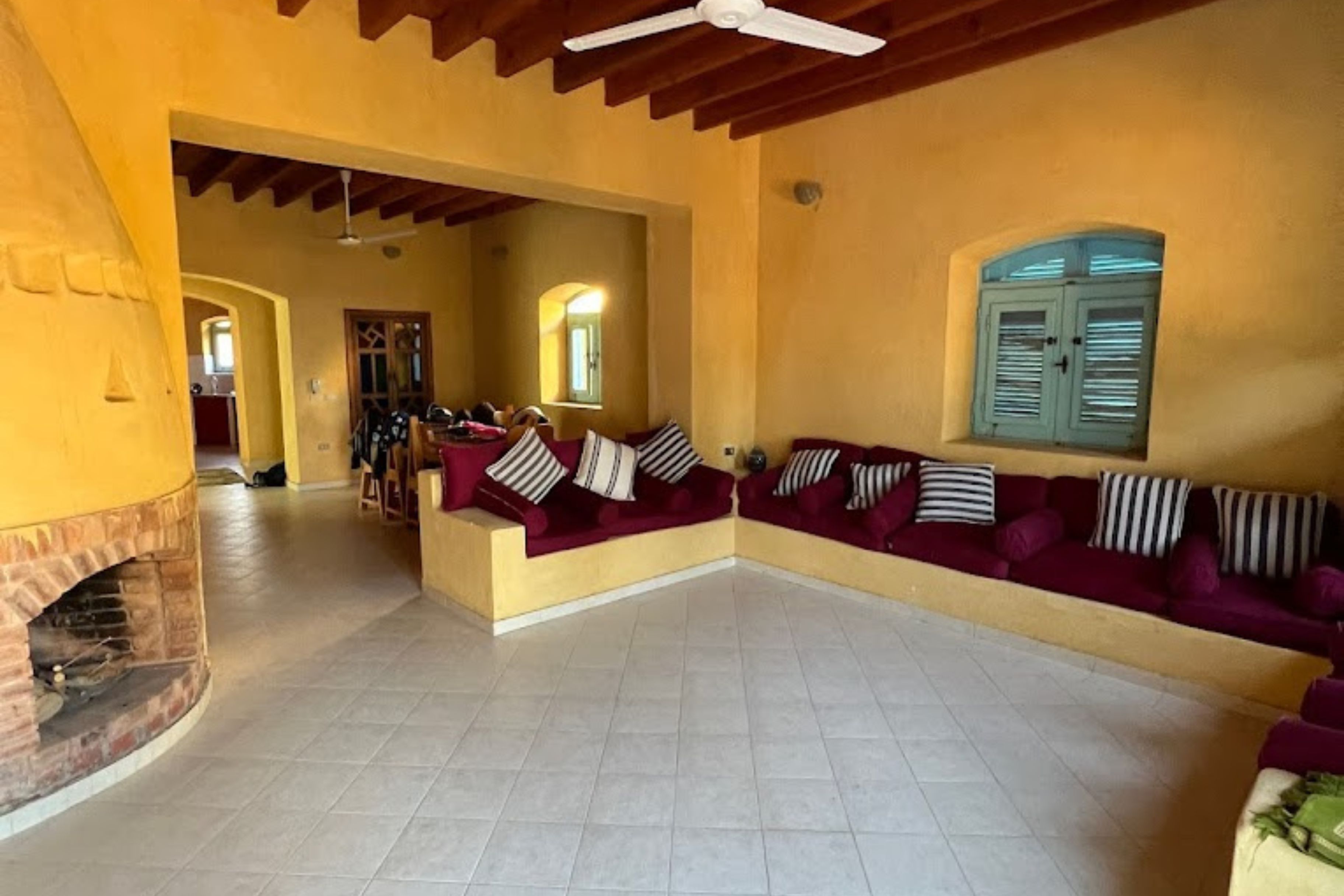
“I fell in love with the house the moment I saw it. It’s my retirement plan house,” Ahmed Farag – the owner of Blue Tunis Villa and (as I would later find out) the founder of Egyptian eco-tourism company, Remal Adventures – had told me, as I was looking to arrange this little getaway. “The main reason I’m keeping it open for others to enjoy is because when something is left unused, it loses its spark.”
In retrospect, I think part of the reason Noher and I both found this house so serene, so soul-mending was because the owner himself had infused his own heart into its refurbished walls, floors, ceilings, and gardens.
-1558bf8e-954c-4b12-9865-0b50fdefb887.jpg)
And it was all built by a naturally-skilled architect without a degree.
“El Hagg Sayed built the house 18 years ago, with no official education,” Farag had revealed to me at one point. “It was one of the first in the entire area.” Apparently, El Hagg Sayed had actually gone on to build a few more houses on the block. “And can you guess who his inspiration was? Hassan Fathy.”
By paying humble tribute to one of Egypt’s most renowned architects, the culture of his forefathers, and the surrounding land off which they all lived, El Hagg Sayed managed to create a space so grounded and so warm, it allowed me and, eventually, Noher to find some much needed solace within its soul-soothing embrace.
- Previous Article The MENA Retreats That Made the Cut for World's '50 Best Hotels' 2024
- Next Article Travel Across History on Egypt's Most Iconic Bridges
Trending This Month
-
Jan 31, 2026



